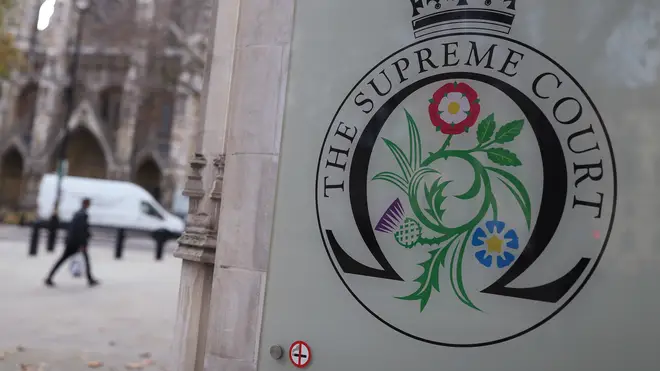
Vanessa Feltz 3pm - 6pm
15 January 2021, 14:44

A Supreme Court judgment in the £1.2 billion case was released on Friday.
A ruling by the Supreme Court is likely to force insurers to pay out to around 370,000 businesses who were impacted by the Covid-19 crisis last year.
The Financial Conduct Authority (FCA) brought what experts believe could be a £1.2 billion case over when insurers have to pay out.
The Supreme Court found largely in favour of the FCA’s case.
The Supreme Court has handed down its judgment in the FCA’s business interruption insurance test case: https://t.co/9kMlBMXuhh pic.twitter.com/oIa6HWqfYe
— Financial Conduct Authority (@TheFCA) January 15, 2021
– Why were insurers taken to court?
In the run-up to, and during, the Covid-19 lockdown that started in March, many small businesses were asked, and later forced, to close by the Government.
Some did so thinking they would be able to claim on their insurance, under so-called business interruption clauses, but many insurers argued otherwise.
The FCA brought several test cases, designed to test 21 types of insurance policy from eight insurers. This aimed to allow a quick ruling which could act as guidance to other insurers and other policies on whether they should pay out.
– What kind of policies did businesses have?
Before the pandemic, many businesses only had insurance covering direct damage to their property.
However some had policies designed to pay out if their business was interrupted by disease, and others had paid for policies that would activate if access to their business was prevented by a public authority, or if they were ordered to close.
There were many different policies, but the ones tested by the courts included some of the most common wording.
– Why were insurers not paying out?
The insurance companies had several arguments why they should not have to pay. Some said their business interruption clauses were only activated if a local disease caused a business to suffer. Because the coronavirus lockdown was nationally mandated, insurers argued they did not have to pay out.
Other arguments hinged on a precedent set in a 2010 High Court case which found that an insurer did not have to pay out business interruption insurance to a New Orleans hotel after hurricanes Katrina and Rita.
The insurer only had to compensate the hotel for direct damage the hurricane caused, and argued that the hotel’s business would have been interrupted whether or not it was directly damaged, so only paid out part of the insurance.
– What happens next?
The case was never meant to iron out all difficulties, just to get clarity on some common issues that many policyholders were running into when trying to get a payout.
“Today’s judgment does not determine how much is payable under individual policies, but provides much of the basis for doing so,” the FCA said.
Insurers decided to pay out claims on some policies after an earlier High Court ruling on the issue. They had also been asked by the FCA to progress some applications so they were ready to be settled rapidly when the Supreme Court ruled.
Policyholders who are affected can expect to hear from their insurer soon, the FCA said, and should approach their advisers or insurers with any questions.
The FCA has already published draft guidance on how a business can prove Covid-19 was present in their local area, which is required for some policies.